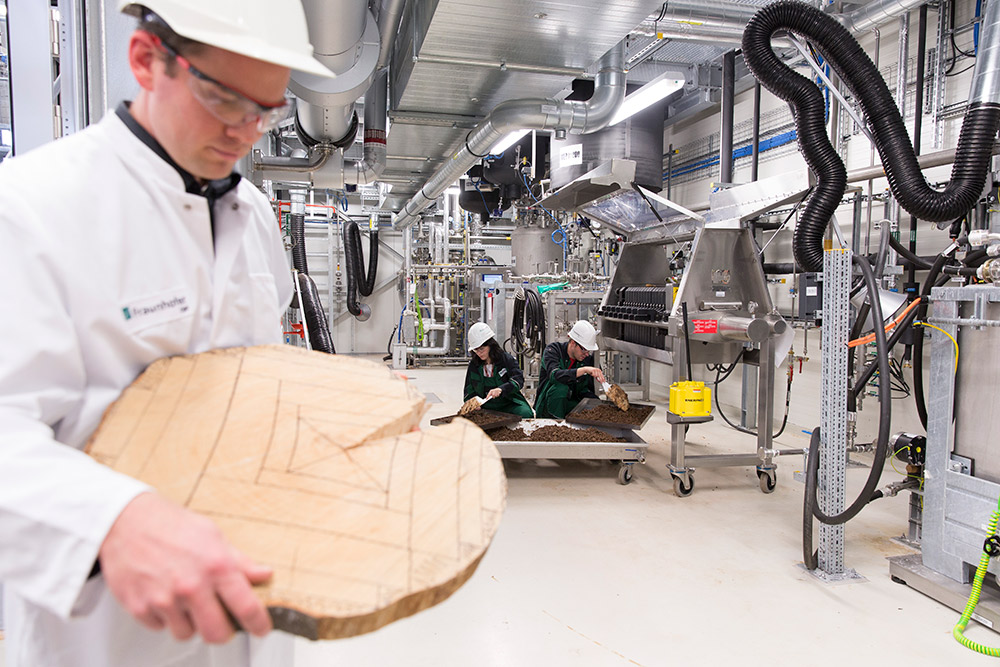From the starting material to the final product
Throughout the entire value chain of developing lignin-based products, from extraction and modification to analysis of this biopolymer, the Fraunhofer-Gesellschaft is pooling expertise across all institutes conducting research in this field and creating a central resource for industry, science and politics.
Lignin, one of the most common natural biopolymers, is a unique, regenerative and biogenic source of bio-based aromatic compounds. Aromatic compounds are an important chemical group for applications in polymers, adhesives, coatings and antioxidants.
In the paper industry, lignin is a plentiful byproduct. The kraft pulping process produces around 50 million tons of lignin-containing black liquor. The concentrated black liquor is then burnt at the pulp factories to meet their own energy needs. However, the material utilization of lignin has so far remained far below the theoretical possibilities. It requires a suitable method of extraction and, if necessary, modification of the raw material so that it can be used in polyurethane or other plastics, for example. Using lignin could save large quantities of petrochemical raw materials, opening up access to a wide range of green product classes.
